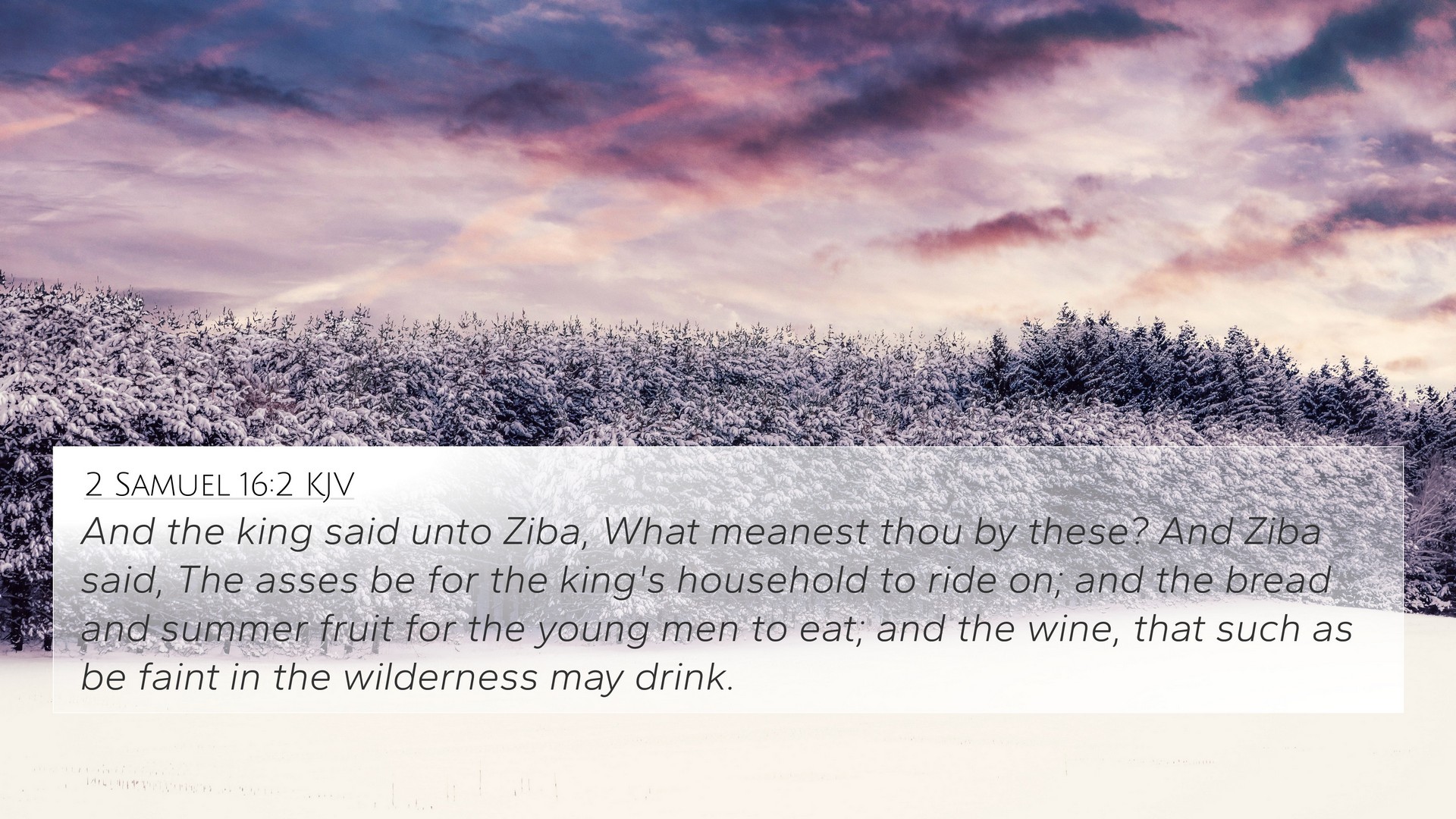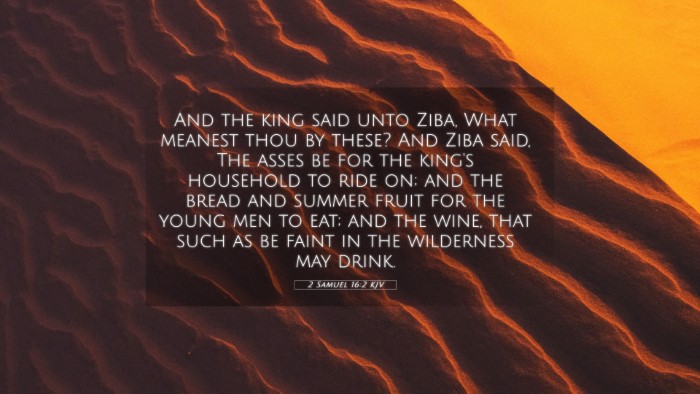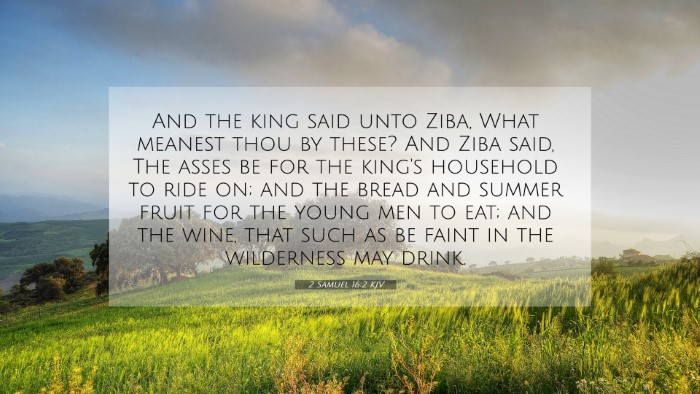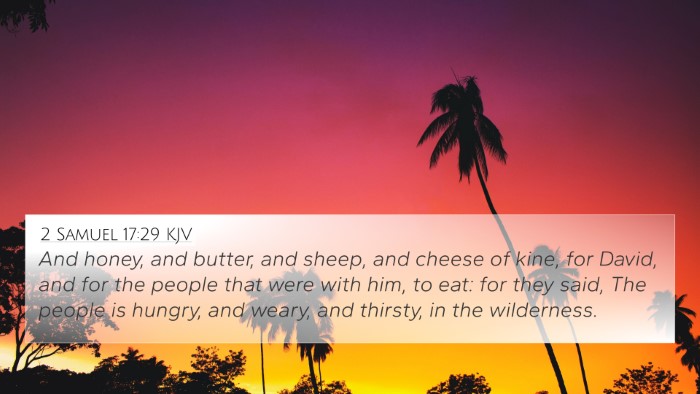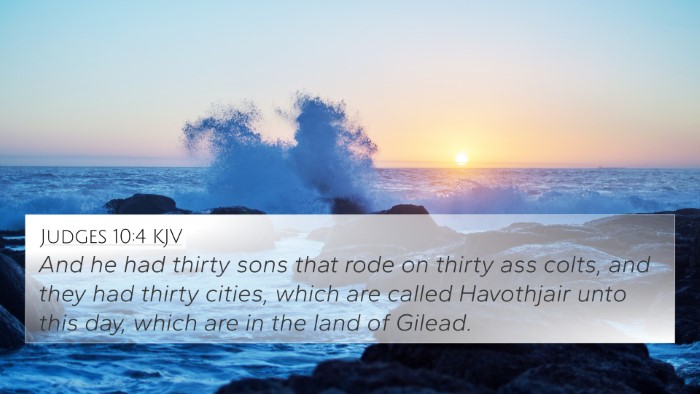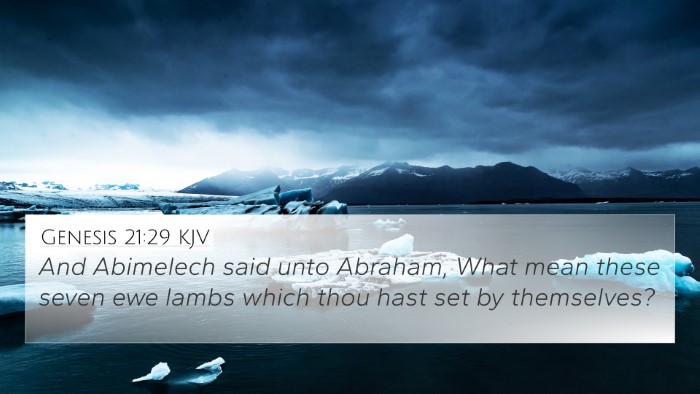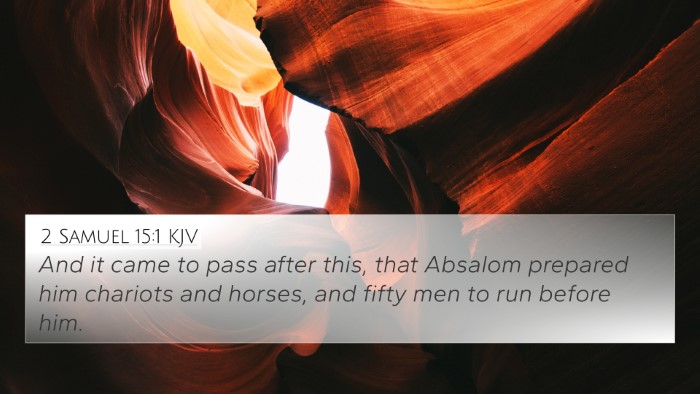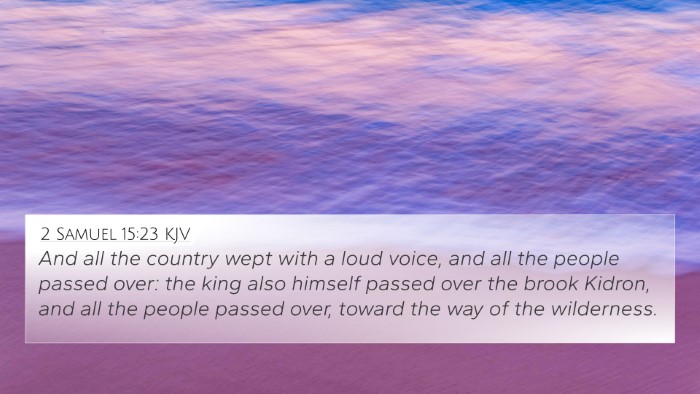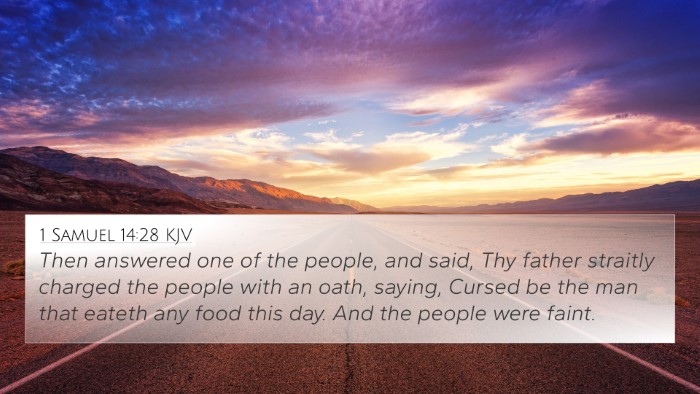Understanding 2 Samuel 16:2
Bible Verse: 2 Samuel 16:2 - "And the king said unto Ziba, What meanest thou by these?" And Ziba said, "The asses be for the king's household to ride on, and the bread and summer fruit for the young men to eat; and the wine, that such as be faint in the wilderness may drink."
Introduction to 2 Samuel 16:2
This verse occurs in a context where King David is facing immense political turmoil during Absalom's rebellion. In this scenario, we see Ziba, the servant of Mephibosheth, presenting provisions for David's men. This act reveals deeper themes of loyalty, provision, and the hardships faced by David during his flight from Jerusalem.
Commentary Insights
The commentaries by Matthew Henry, Albert Barnes, and Adam Clarke provide valuable insights into this verse:
Matthew Henry's Commentary
Henry emphasizes the significance of Ziba’s provisions as a gesture of support for David during a time of crisis. He notes that despite the chaos, God provided for David’s needs through Ziba. This reflects God's faithfulness to His chosen leaders even in turbulent times.
Albert Barnes's Commentary
Barnes points out the practical implications of Ziba’s actions, highlighting the urgency of David's situation. He elucidates the importance of physical sustenance in the military context, showing how the supplies not only symbolize support but also a way to sustain David’s authority and encourage his men.
Adam Clarke's Commentary
Clarke focuses on the symbolic nature of the gifts presented by Ziba. He interprets the ass as a symbol of peace while the provisions serve as a reminder of God’s provision. Clarke also discusses the potential motivations behind Ziba's actions, raising questions about his true loyalty to Mephibosheth and David.
Thematic Connections
Several themes emerge from 2 Samuel 16:2, notably:
- Divine Provision: The verse illustrates how God supplies the necessities of life through unexpected means.
- Friendship and Loyalty: Ziba’s role raises questions about loyalty amidst division.
- Leadership Under Duress: David’s management of the crisis and how he interacts with those around him reveal his character as a leader.
Cross-Reference Analysis
Understanding 2 Samuel 16:2 becomes clearer when we consider other scriptures that relate to its themes:
- 1 Samuel 16:13 – David’s anointing and God’s choice of him as king.
- 2 Samuel 15:14 – David’s decision to flee from Absalom and the burdens of leadership.
- 1 Kings 1:7 – Political plots surrounding David’s reign, showing the context of Ziba's loyalty.
- Psalm 34:10 – Assurance that those who seek the Lord will lack no good thing, echoing God’s provision.
- Luke 12:22-26 – Jesus teaches about God’s provision for those who trust in Him.
- Philippians 4:19 – Paul’s declaration of God’s ability to supply all of our needs.
- 2 Corinthians 9:8 – God provides us with everything we need for all good works, reflecting the theme of divine assistance.
Summary of Themes
The verse serves as a smaller piece in a large narrative that conveys God's faithfulness and the complexities of human relationships within divine plans. David’s story as a king is not just about leadership but also about reliance on God’s provision during trials.
Conclusion
2 Samuel 16:2 is rich with meaning and provides a microcosm of David's struggles and God’s enduring faithfulness. Through a comparative Bible verse analysis and by utilizing tools for Bible cross-referencing, readers can explore the intricate connections within the text. Cross-referencing these verses enhances understanding and allows for a deeper exploration of themes across both the Old and New Testaments.
Further Study
For those looking to delve deeper into the connections of this verse and similar passages, consider the following methods:
- Using a Bible Concordance: Find terms that recur across different scriptures to identify themes.
- Bible Cross-Reference Guide: Utilize study Bibles with built-in references to see how verses relate.
- Cross-Referencing Bible Study Methods: Employ systematic approaches to study related verses together.
